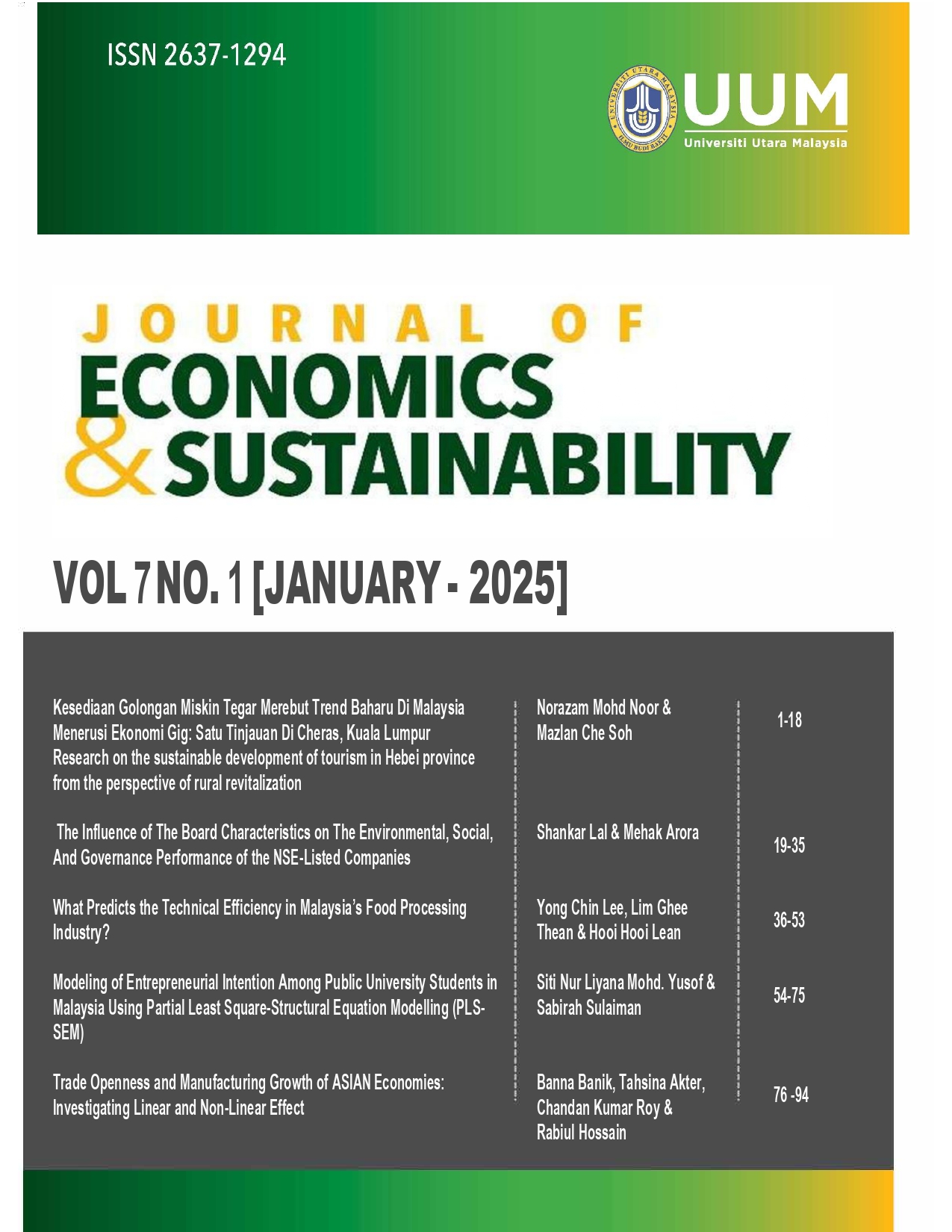MODELING OF ENTREPRENEURIAL INTENTION AMONG PUBLIC UNIVERSITY STUDENTS IN MALAYSIA USING PARTIAL LEAST SQUARE-STRUCTURAL EQUATION MODELLING (PLS-SEM)
DOI:
https://doi.org/10.32890/jes2025.7.1.4Abstract
ABSTRACT
This study presents a comprehensive examination of the factors influencing entrepreneurial intention among undergraduate accounting students in a public university, with a particular focus on higher education. Drawing upon the Decomposed Theory of Planned Behavior (DTPB), the study delves into the psychological aspects of entrepreneurial intention, aiming to deepen our understanding of the key constructs that shape entrepreneurial behavior. A survey involving 520 final year accounting students was conducted, utilizing questionnaires comprising 18 items that measured attitude towards entrepreneurship, subjective norms, perceived behavioral influence, and the desire to pursue entrepreneurship. The study sought to determine the impact of attitude towards behavior, subjective norms, and perceived behavioral control on students' intentions to become entrepreneurs. Employing the PLS-SEM technique and employing the bootstrapping method, the research models were tested to establish the relationships between the constructs. Both the measurement (outer) model and the structural (inner) model of the latent constructs were examined. The findings provided strong support for all seven hypotheses, revealing significant relationships between the variables under investigation. The overall results of the study offer valuable insights to stakeholders and policymakers, contributing to the establishment of a thriving entrepreneurial ecosystem that benefits the nation. By shedding light on the underlying mechanisms of entrepreneurship, this analysis contributes to a deeper understanding of the factors driving entrepreneurial behavior.
Downloads
Published
Issue
Section
License
Copyright (c) 2025 Journal of Economics and Sustainability

This work is licensed under a Creative Commons Attribution 4.0 International License.






